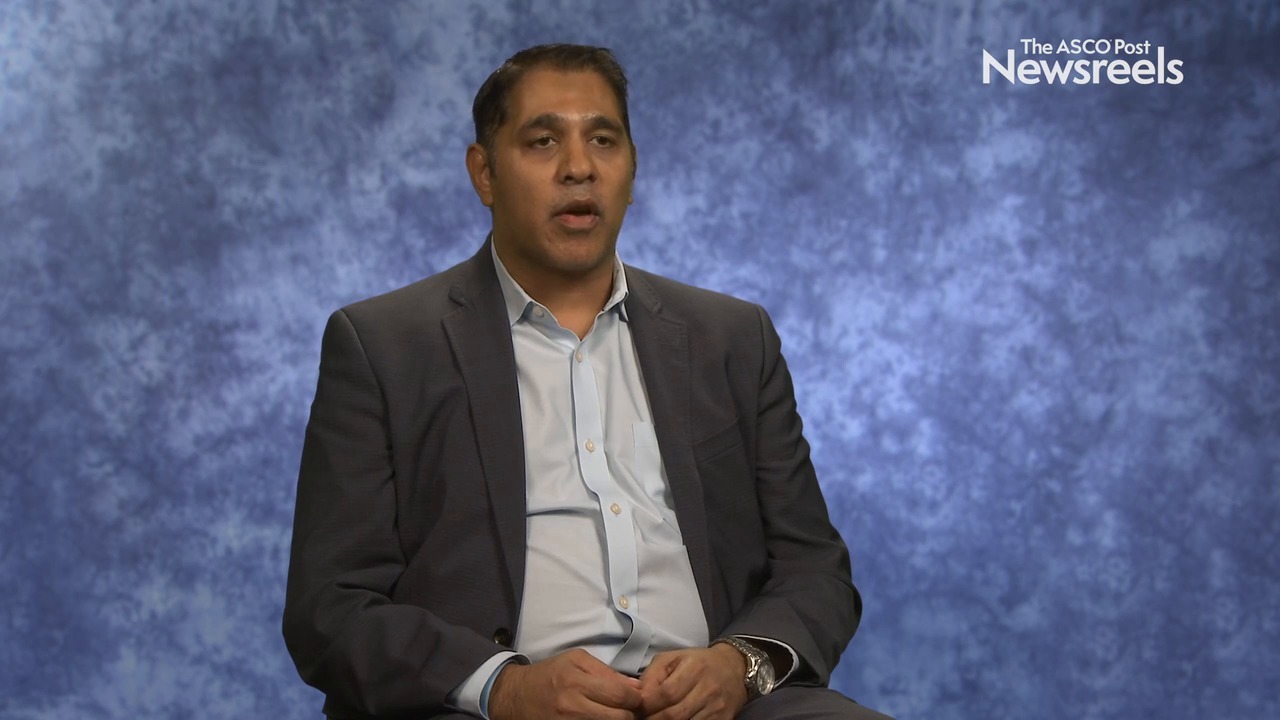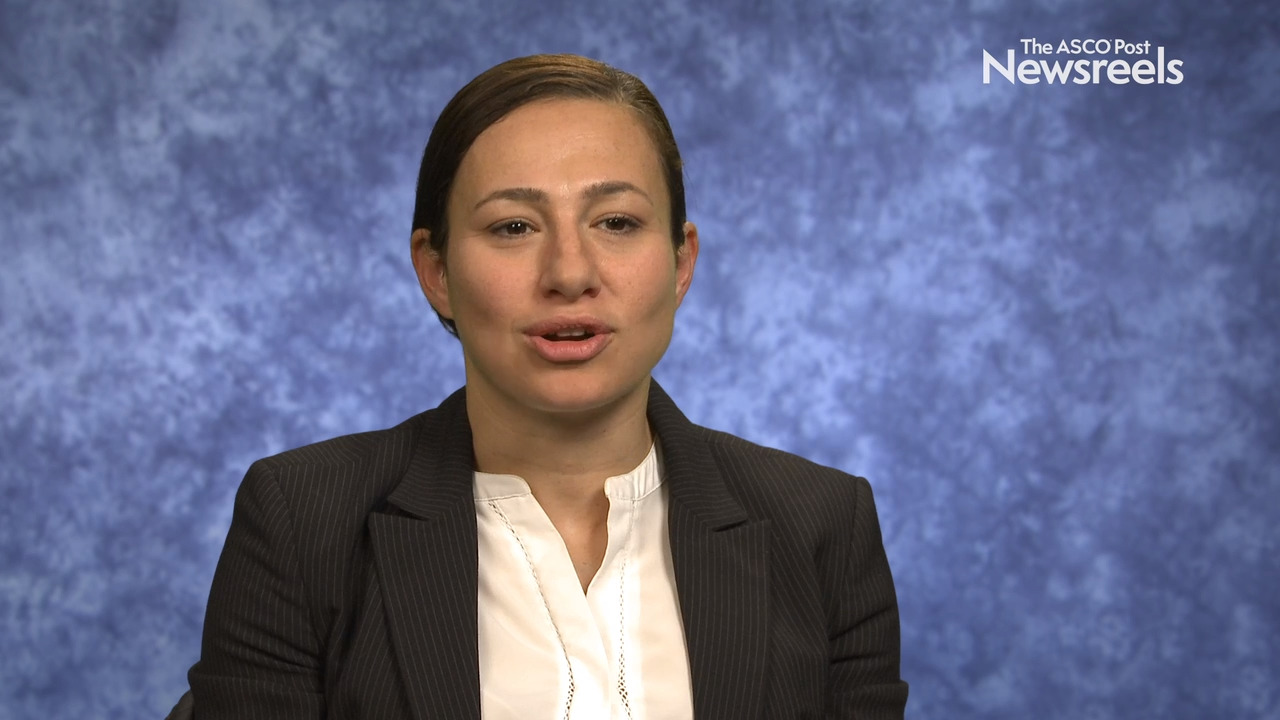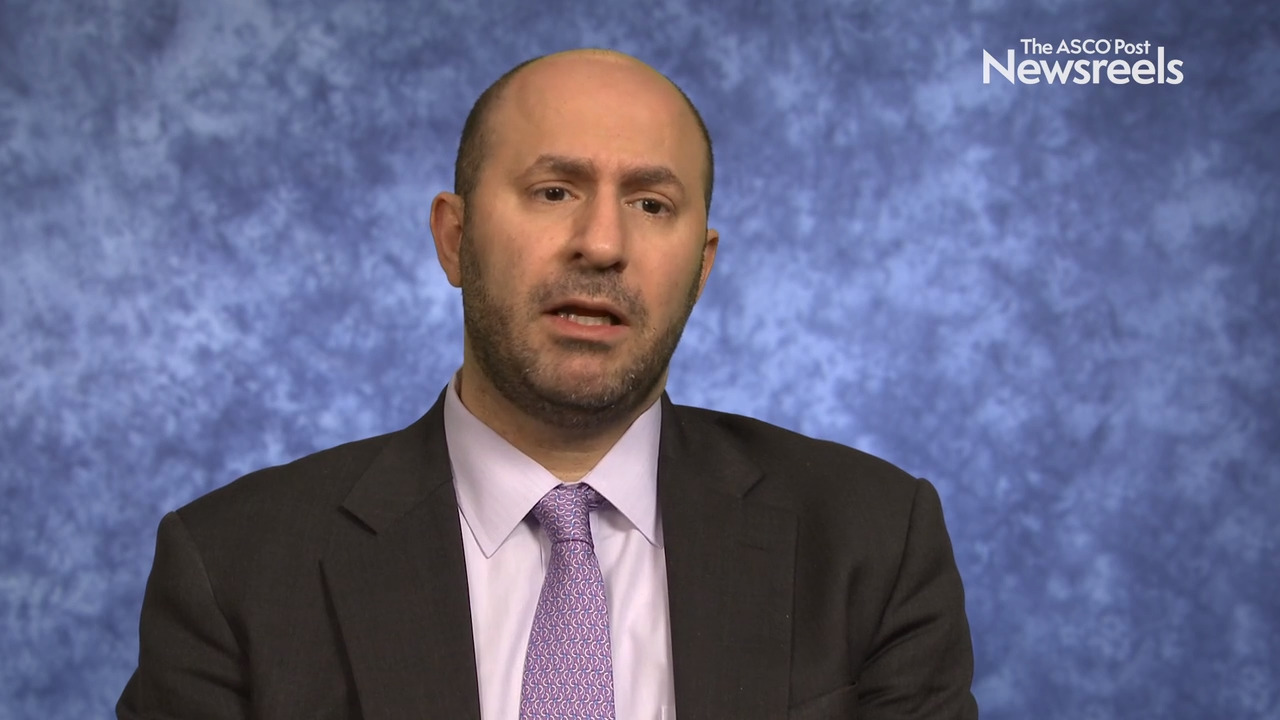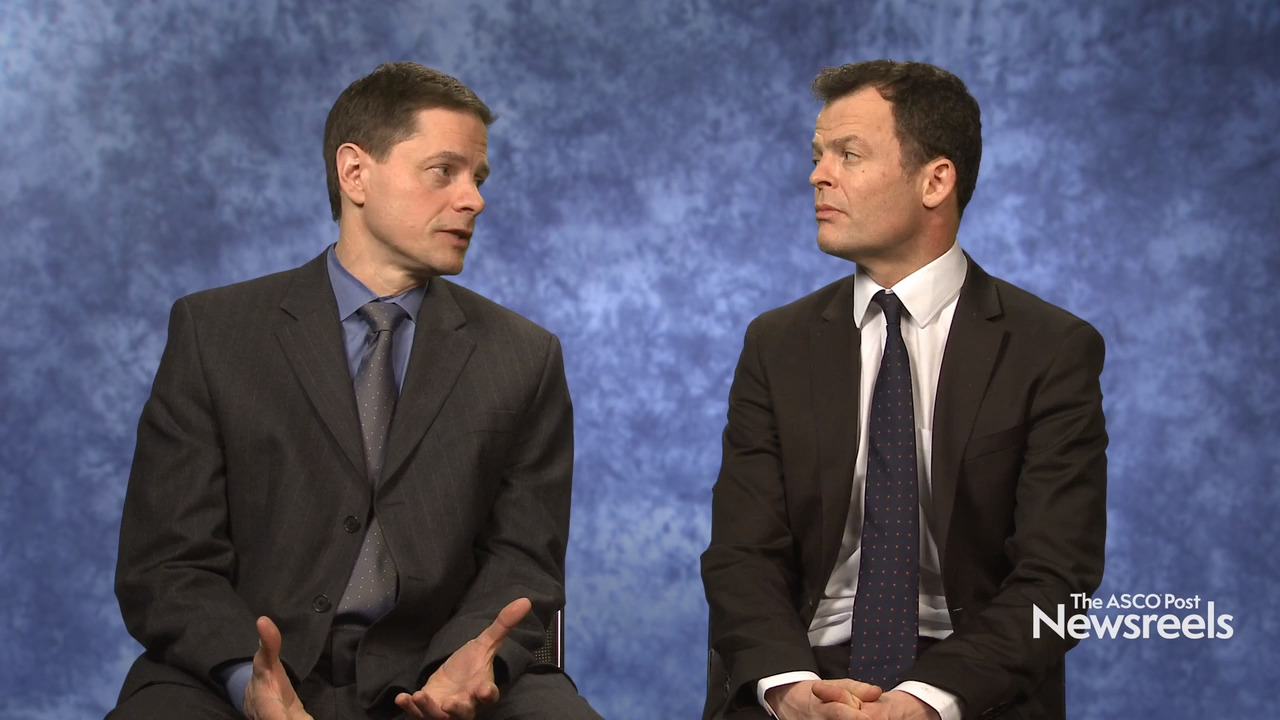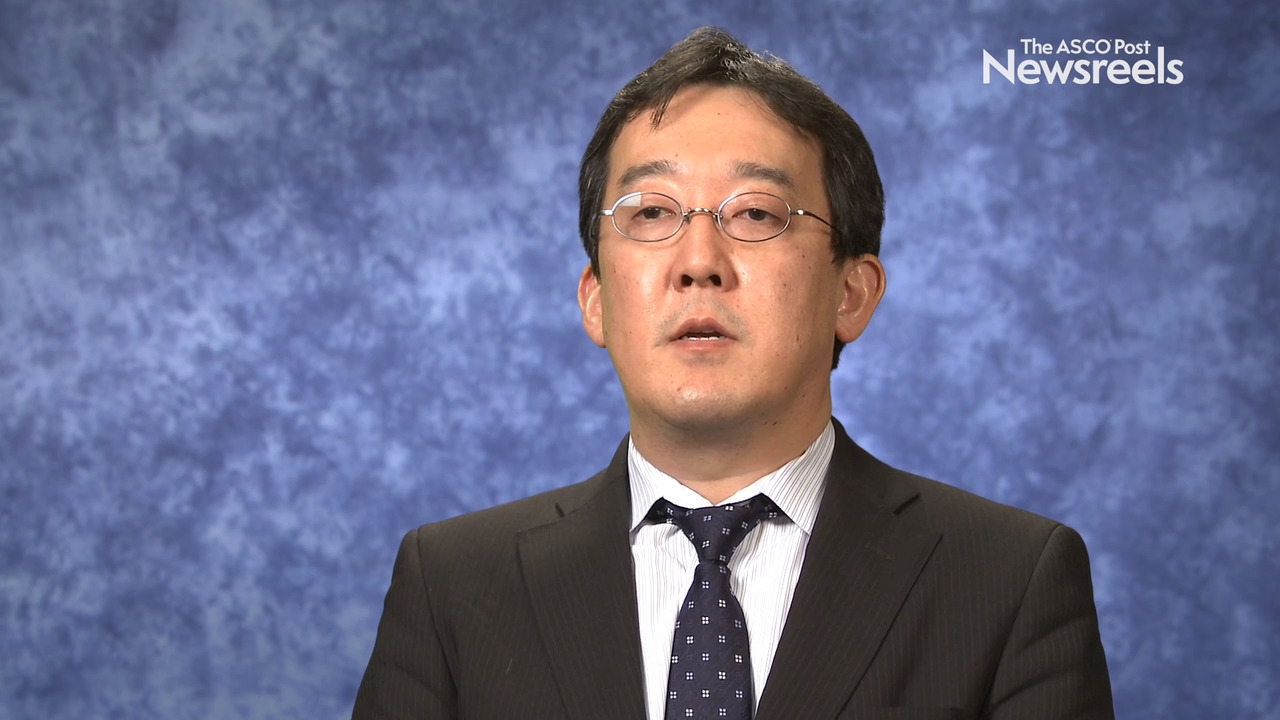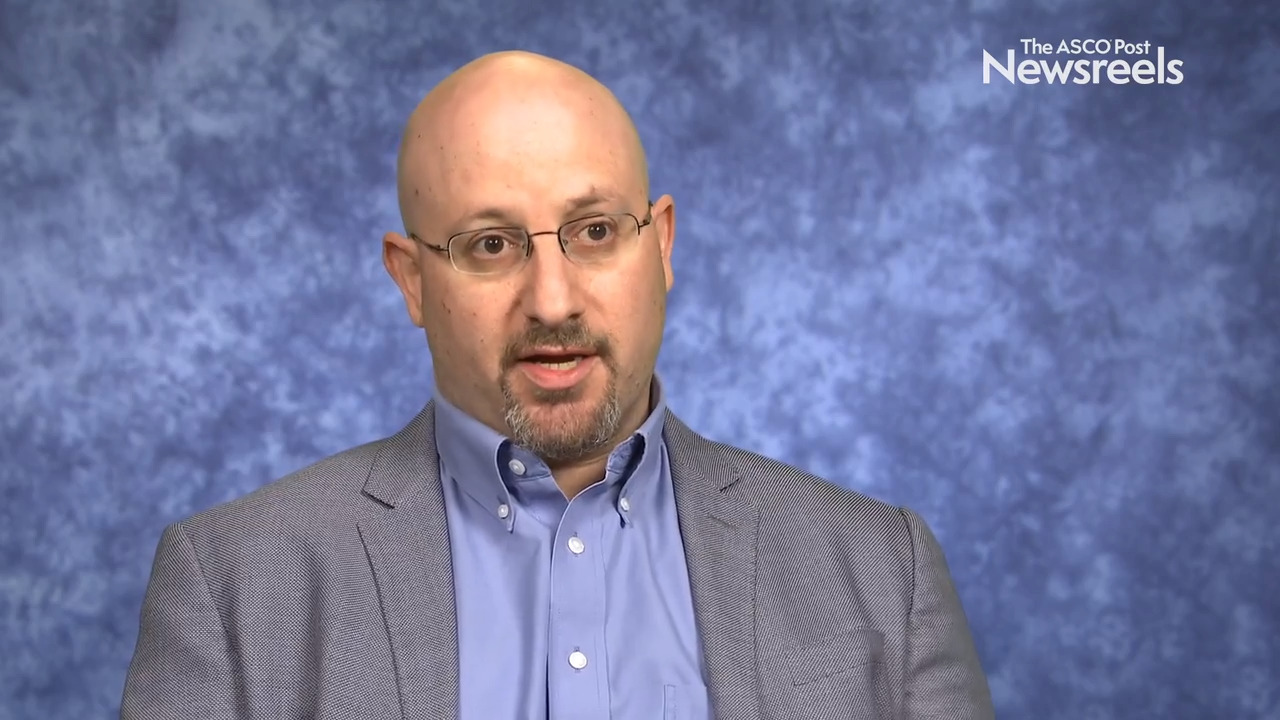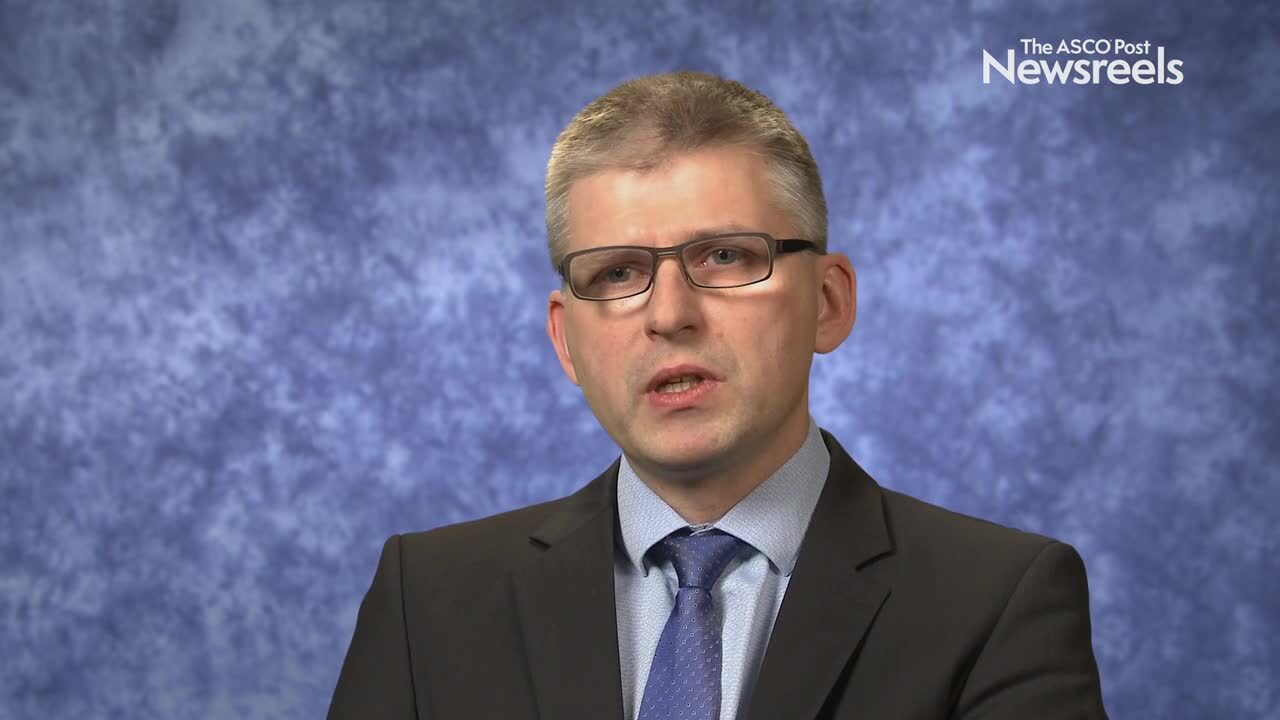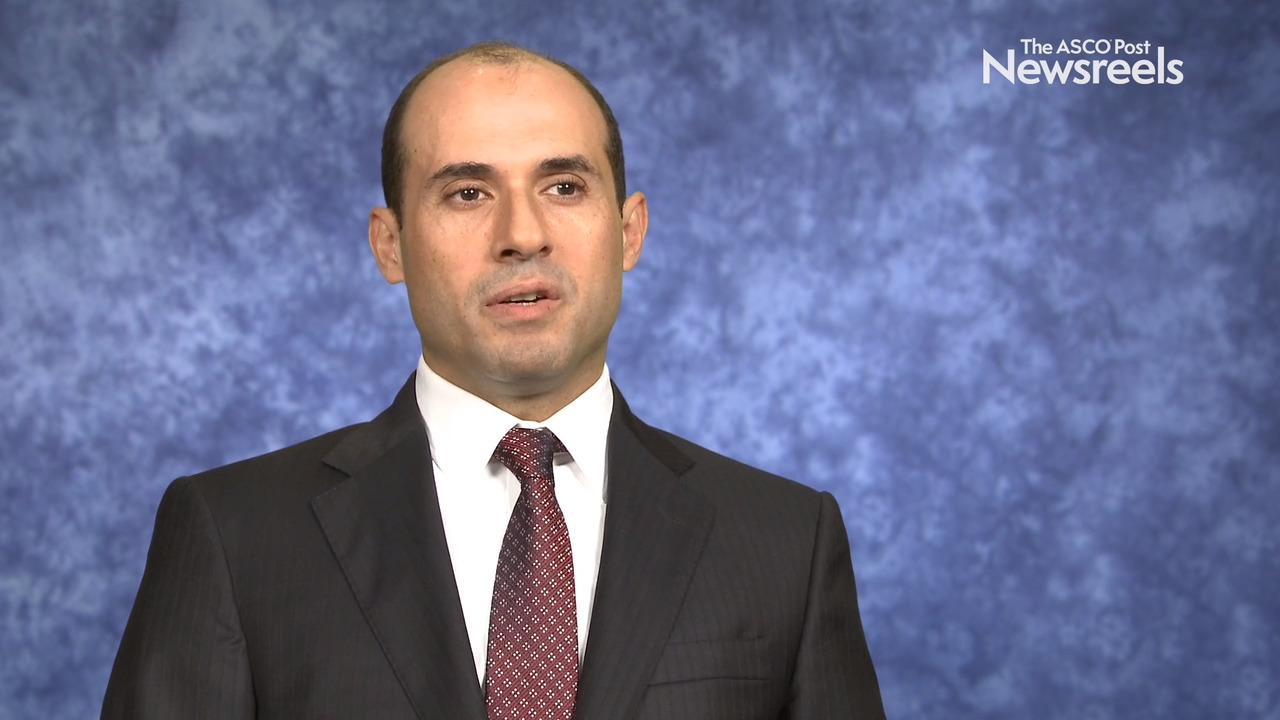Pembrolizumab in Combination With Chemotherapy in First-Line Treatment of Metastatic Squamous NSCLC
In the Clinic provides overviews of novel oncology agents, addressing indications, mechanisms of action, administration recommendations, safety profiles, and other essential information needed for the appropriate clinical use of these drugs. On October 30, 2018, pembrolizumab in combination with...
In Era of Immunotherapy, Radiation Therapy May Become Essential Component of Systemic Treatments of Cancer
“IN THIS era of immunotherapy, it is highly possible, and potentially probable, that radiation therapy may become not just a form of locoregional and palliative treatment, but an essential component of our systemic treatments of cancer,” according to Zachary S. Morris, MD, PhD, Vice-Chair,...
Immunotherapy for Head and Neck Cancer Expands, but Concerns Persist About Patient Selection and Toxicities
SOME PATIENTS with advanced head and neck cancer may achieve durable responses with immunotherapy, and recent trial results suggest first-line immunotherapy may increase survival among patients with recurrent or metastatic disease. However, concerns remain about selecting patients most likely to...
Update on FDA-Approved CAR T-Cell Products
AXICABTAGENE CILOLEUCEL (also known as CAR19) is an anti-CD19 chimeric antigen receptor (CAR) T-cell product approved by U.S. Food and Drug Administration to treat selected hematologic malignancies.1 To appreciate the clinical trial findings summarized here, from selected abstracts presented at the ...
Update on FDA-Approved CAR T-Cell Products
TISAGENLECLEUCEL IS an anti-CD19 chimeric antigen receptor (CAR) T-cell product approved by U.S. Food and Drug Administration to treat selected hematologic malignancies.1,2 To appreciate the clinical trial findings summarized here, from selected abstracts presented at the 2018 American Society of...
Highlights From the 2018 ASH Annual Meeting & Exposition
TO ADD to our ongoing coverage of the 2018 American Society of Hematology (ASH) Annual Meeting & Exposition, we bring readers of The ASCO Post these summaries of an assortment of interesting studies. They focus on novel therapies under investigation in the treatment of acute lymphoblastic...
Expert Point of View: Michael J. Overman, MD
INVITED STUDY discussant Michael J. Overman, MD, Professor of Gastrointestinal Medical Oncology at The University of Texas MD Anderson Cancer Center, Houston, is a co-investigator on CheckMate 142, which led to the approval of another immunotherapy doublet—nivolumab plus ipilimumab—in patients...
Durvalumab and Tremelimumab Combination Active in Refractory Microsatellite-Stable Colorectal Cancer
THE COMBINATION of durvalumab and tremelimumab prolonged median overall survival by 2.5 months compared with best supportive care alone in patients with advanced treatment-refractory colorectal cancer. These findings, which are from the randomized phase II Canadian Cancer Trials Group (CCTG) CO.26...
2019 GU Cancers Symposium: First-Line Pembrolizumab Plus Axitinib vs Sunitinib in Advanced Renal Cell Carcinoma
As reported at the 2019 Genitourinary Cancers Symposium (Abstract 543) and in The New England Journal of Medicine, Rini et al found significant benefits in overall and progression-free survival with the combination of pembrolizumab plus axitinib vs sunitinib in the first-line treatment of advanced...
Addition of First-Line Ramucirumab to Cisplatin and Fluoropyrimidine in Metastatic Gastric or Gastroesophageal Junction Adenocarcinoma
In the phase III RAINFALL trial reported in The Lancet Oncology, Fuchs et al found no apparent benefit of the addition of the VEGFR-2 inhibitor ramucirumab to first-line cisplatin and fluoropyrimidine treatment in metastatic gastric or gastroesophageal junction adenocarcinoma. Study Details The...
Sumit K. Subudhi, MD, PhD, on Prostate Cancer: Results From the CheckMate 650 Trial on Nivolumab and Ipilimumab
Sumit K. Subudhi, MD, PhD, of The University of Texas MD Anderson Cancer Center, discusses the initial results from a phase II study of nivolumab plus ipilimumab in the treatment of metastatic castration-resistant prostate cancer (Abstract 142).
Rana R. McKay, MD, on Renal Cell Carcinoma: Results From a Trial on Atezolizumab and Bevacizumab
Rana R. McKay, MD, of the University of California, San Diego, discusses phase II study findings on atezolizumab and bevacizumab in non–clear cell renal cell carcinoma and clear cell renal cell carcinoma with sarcomatoid differentiation (Abstract 548).
Laurence Albiges, MD, PhD, on Renal Cell Carcinoma: Results From the NIVOREN GETUG-AFU 26 Study on Nivolumab
Laurence Albiges, MD, PhD, of Gustave Roussy, discusses findings on the safety and efficacy of nivolumab used in a “real world” prospective study on metastatic renal cell carcinoma (mRCC). This research was conducted after nivolumab was approved for the treatment of mRCC following failure of one or two tyrosine kinase inhibitors (Abstract 542).
Toni K. Choueiri, MD, on Renal Cell Carcinoma: Trial Results on Avelumab Plus Axitinib vs Sunitinib
Toni K. Choueiri, MD, of Dana-Farber Cancer Institute, discusses a subgroup analysis from the JAVELIN Renal 101 study on outcomes for avelumab plus axitinib vs sunitinib in advanced renal cell carcinoma (Abstract 544).
Brian I. Rini, MD, and Thomas Powles, MD, PhD, on Renal Cell Carcinoma: Results From the KEYNOTE-426 Trial on Pembrolizumab Plus Axitinib vs Sunitinib
Brian I. Rini, MD, of the Cleveland Clinic Taussig Cancer Institute, and Thomas Powles, MD, PhD, of Queen Mary University of London, discuss their study findings on pembrolizumab plus axitinib vs sunitinib as first-line therapy for locally advanced or metastatic renal cell carcinoma (Abstract 543).
2019 GU Cancers Symposium: CheckMate 650: Nivolumab and Ipilimumab in Metastatic, Castration-Resistant Prostate Cancer
Some patients with metastatic prostate cancer respond to a combination of immune checkpoint inhibitors after treatment with hormonal therapy and chemotherapy has not been successful in treating their disease, according to early results from the phase II CheckMate 650...
FDA Approves Adjuvant Pembrolizumab for Melanoma
On February 15, the U.S. Food and Drug Administration (FDA) approved pembrolizumab (Keytruda) for the adjuvant treatment of patients with melanoma with lymph node involvement following complete resection. Approval was based on the phase III EORTC1325/KEYNOTE-054 trial, a randomized, double-blind,...
2019 GU Cancers Symposium: JAVELIN Renal 101: Avelumab Plus Axitinib vs Sunitinib for Advanced Kidney Cancer
A combination of two drugs could become a new standard first-line treatment for patients with metastatic kidney cancer, according to results from the JAVELIN Renal 101 trial presented at the 2019 Genitourinary Cancers Symposium (Abstract 544) and simultaneously published in The New England...
CMS Proposes Medicare Coverage With Evidence Development for CAR T-Cell Therapy
Today, the Centers for Medicare & Medicaid Services (CMS) proposed coverage of U.S. Food and Drug Administration (FDA)–approved chimeric antigen receptor (CAR) T-cell therapy under its “coverage with evidence development” paradigm. Currently, there is no national...
FDA Pipeline: Priority Reviews in Renal Cell Carcinoma and Head and Neck Cancer
Over the past week, the U.S. Food and Drug Administration (FDA) granted multiple Priority Reviews: Pembrolizumab in Combination With Axitinib as First-Line Treatment for Advanced Renal Cell Carcinoma Today, the FDA accepted and granted Priority Review for a new supplemental biologics license...
First-Line Pembrolizumab in Advanced Merkel Cell Carcinoma
In a phase II trial (Cancer Immunotherapy Trials Network-09/Keynote-017) reported in the Journal of Clinical Oncology, Nghiem et al found that first-line pembrolizumab produced a high response rate in patients with advanced Merkel cell carcinoma. In the multicenter trial, 50 adult patients who had ...
Steven A. Rosenberg, MD, PhD, Awarded the 2019 Szent-Györgyi Prize
The 2019 Szent-Györgyi Prize for Progress in Cancer Research will be awarded to Steven A. Rosenberg, MD, PhD, of the Center for Cancer Research (CCR) at the National Cancer Institute (NCI). The prize, awarded annually by the National Foundation for Cancer Research (NFCR), recognizes Dr....
2019 GU Cancers Symposium: KEYNOTE-426: Pembrolizumab Plus Axitinib vs Sunitinib in Advanced Renal Cell Carcinoma
Results from the randomized, phase III KEYNOTE-426 clinical trial show that first-line therapy with a combination of pembrolizumab and axitinib extended both overall survival (OS) and progression-free survival (PFS) for patients with clear cell metastatic renal cell carcinoma compared with the...
FDA Approves Daratumumab Split-Dosing Regimen
The U.S. Food and Drug Administration (FDA) has approved a split-dosing regimen for daratumumab (Darzalex), a CD38-directed antibody, providing health-care professionals and patients with multiple myeloma an option to split the first infusion over 2 consecutive days. The approval is based on...
Neoadjuvant Combination Checkpoint Blockade in Advanced Melanoma
Neoadjuvant combination checkpoint blockade showed activity among patients with high-risk stage III melanoma in a small study. However, a high incidence of side effects caused the trial to be closed early. These results were published by Rodabe N. Amaria, MD, Assistant Professor of Melanoma...
How Turning ‘Cold’ Tumors Into ‘Hot’ Ones May Improve Response to Immunotherapy
The proliferation of immunotherapeutics in the treatment of cancer over the past decade has revolutionized the way many cancers are treated, especially lung cancer and melanoma, as well as some blood cancers, including leukemia and lymphoma, drastically improving outcomes for many patients with...
Immunotherapy in Patients With HIV Infection and Advanced Cancer
A study published by Cook et al in JAMA Oncology focused on whether treatment with checkpoint inhibitors is both safe and effective in patients with advanced cancer who are also human immunodeficiency virus (HIV)-positive. Because checkpoint inhibitors manipulate the immune system, the concern has...
Machine Learning Identifies Multiple Underlying Factors Predicting Response to Immunotherapy
A research team is using a branch of artificial intelligence known as machine learning to better target immunotherapy to those who will benefit. In a recent study published by Leiserson et al in PLOS One, the team used data from a clinical trial of patients with bladder cancer to...
Real-World Treatment Impact of Newer Agents on Survival of Patients With Metastatic Melanoma
The approval of several new agents for metastatic melanoma in the past several years has led to changes in how the disease is treated and managed. Treatments such as the programmed cell death protein 1 (PD-1) inhibitors pembrolizumab, ipilimumab, and nivolumab; BRAF inhibitors; and MEK inhibitors...
Avelumab in Recurrent or Refractory Ovarian Cancer
In phase Ib results from the JAVELIN Solid Tumor Trial reported in JAMA Oncology, Disis et al found that avelumab produced durable responses in some patients with recurrent or refractory ovarian cancer. In the study, an expansion cohort of 125 women with advanced disease who had received...
Multiple Myeloma Pipeline Filled With CAR T-Cell Therapies
The burgeoning pipeline of chimeric antigen receptor (CAR) T-cell therapies targeting B-cell maturation antigen (BCMA) in multiple myeloma was on full display at the 2018 American Society of Hematology (ASH) Annual Meeting & Exposition. A bispecific antibody also made its debut in this busy...
First-Line Trastuzumab Plus Pembrolizumab Shows Efficacy in Patients With Metastatic Esophagogastric Cancer
When added to first-line chemotherapy in patients with untreated metastatic HER2-positive esophageal, gastroesophageal junction, and gastric adenocarcinoma, the combination of pembrolizumab and trastuzumab produced responses in 87% of patients, with 100% of patients experiencing disease control and ...
Lung-MAP Precision Medicine Trial Expands
The Lung Cancer Master Protocol (Lung-MAP), the first precision medicine trial in lung cancer supported by the National Cancer Institute (NCI), is undergoing a major expansion to include patients with all non–small cell lung cancers (NSCLCs). The trial previously tested treatments for people ...
How Effective Is Talimogene Laherparepvec Injection in Metastatic Melanoma?
Injection of a genetically modified virus that induces the body’s own immune cells to attack metastatic melanoma effectively treated almost 40% of patients with tumors that could not be surgically removed, according to findings published by Louie et al in the Journal of the American...
Nivolumab or Nivolumab Plus Ipilimumab in Relapsed Malignant Pleural Mesothelioma
In a French phase II trial reported in The Lancet Oncology, Scherpereel et al found evidence of activity with nivolumab or the combination of nivolumab plus ipilimumab in patients with relapsed malignant pleural mesothelioma. Study Details In the open-label, noncomparative trial, 125 patients...
Avelumab in Previously Treated Advanced Unresectable Mesothelioma
In a phase Ib trial reported in JAMA Oncology, Hassan et al found that the anti–programmed cell death ligand 1 antibody avelumab produced durable responses and a high rate of disease control in some patients with advanced unresectable mesothelioma progressing after platinum and pemetrexed...
Results Reported From the Phase III ANNOUNCE Trial of Olaratumab in Soft-Tissue Sarcoma
The recently reported results of ANNOUNCE, the phase III study of olaratumab in combination with doxorubicin in patients with advanced or metastatic soft-tissue sarcoma, did not confirm the clinical benefit of olaratumab in combination with doxorubicin as compared to doxorubicin, a...
IMpassion130 Trial: Changing the Treatment Landscape in Metastatic Triple-Negative Breast Cancer
THE IMPASSION130 trial—reported in The New England Journal of Medicine by Schmid et al1 and reviewed in this issue of The ASCO Post—was an eagerly awaited study in newly diagnosed metastatic triple-negative breast cancer. To briefly review, 902 patients were randomly assigned in a 1:1 fashion to...
Addition of Atezolizumab to Nab-Paclitaxel in Advanced Triple-Negative Breast Cancer: IMpassion130 Trial
AS REPORTED in The New England Journal of Medicine by Peter Schmid, MD, PhD, of the Barts Cancer Institute, Queen Mary University of London, and colleagues, the phase III IMpassion130 trial has shown that the addition of atezolizumab to nanoparticle albumin-bound (nab)-paclitaxel significantly...
Challenge Moving Forward in Breast Cancer Treatment: To Show That New Approaches Change Outcomes
ADVANCES IN treating breast cancer over the past 20 years have brought us to the point where treatment can be confidently de-escalated for some patients, and immunotherapy and precision decision-making may change the way breast cancer is treated for others, William Gradishar MD, FASCO, told the...
PACIFIC Trial of Durvalumab Sets Standard in Stage III Unresectable NSCLC
IMMUNOTHERAPY HAS revolutionized the treatment of lung cancer over the past several years. Although lung cancer is associated with immunosuppression at baseline for most patients, the addition of immune checkpoint inhibitors can overcome that suppression and lead to antitumor immune responses....
Overall Survival in Men and Women Receiving Immune Checkpoint Inhibitors for Advanced Cancers
In a systematic review and meta-analysis reported in JAMA Oncology, Wallis et al found no difference in overall survival benefit in women vs men receiving immune checkpoint inhibitor treatment for advanced solid tumors. The authors noted that a prior analysis had suggested men derived a greater...
Takashi Kojima, MD, on Esophageal Cancer: Results From the KEYNOTE-181 Trial on Immunotherapy vs Chemotherapy
Takashi Kojima, MD, of the National Cancer Center Hospital East, discusses phase III study findings on pembrolizumab vs chemotherapy as second-line treatment for advanced esophageal cancer (Abstract 2).
Jonathan R. Strosberg, MD, on Neuroendocrine Tumors: Results From the KEYNOTE-158 Trial on PD-1 Inhibition
Jonathan R. Strosberg, MD, of the Moffitt Cancer Center, discusses phase II study findings on pembrolizumab as a treatment for advanced neuroendocrine tumors (Abstract 190).
Carl C. Schimanski, MD, PhD, on Colorectal Cancer Liver Metastases: Study Results on Tecemotide After Surgery
Carl C. Schimanski, MD, PhD, of the Municipal Hospital Darmstadt, discusses phase II study findings on adjuvant immunotherapy with tecemotide after colorectal cancer liver metastasectomy (Abstract 480).
Ahmed Omar Kaseb, MD, on Liver Cancer: Results From an Immunotherapy Trial
Ahmed Omar Kaseb, MD, of The University of Texas MD Anderson Cancer Center, discusses phase II study findings on nivolumab alone vs nivolumab plus ipilimumab in patients with resectable hepatocellular carcinoma (Abstract 185).
Patient-Reported Outcomes With Nivolumab Plus Ipilimumab vs Sunitinib in Advanced Renal Cell Carcinoma
As reported in The Lancet Oncology by Cella et al, patient-reported outcomes were better with nivolumab plus ipilimumab vs sunitinib in the phase III CheckMate 214 trial among patients with intermediate- or poor-risk advanced renal cell carcinoma. The ongoing trial showed significantly improved...
2019 GI Cancers Symposium: Pembrolizumab in Pretreated, Advanced Neuroendocrine Tumors
Findings from the phase I KEYNOTE-028 trial, which studied pembrolizumab in a number of solid tumors, showed activity of the immunotherapy in some patients with heavily pretreated neuroendocrine tumors. Now, a phase II basket trial—KEYNOTE-158—is studying the efficacy and safety of...
Adoptive T-Cell Therapy for Progressive Multifocal Leukoencephalopathy
An emerging treatment known as adoptive T-cell therapy has proven effective in a phase II clinical trial for treating progressive multifocal leukoencephalopathy (PML), a rare and often fatal brain infection sometimes observed in patients with cancer and other diseases in which the immune system is...
Novel Therapeutics for Relapsed or Refractory Multiple Myeloma, Part 2
Here is an update on several different studies focusing on novel treatments for patients with relapsed or refractory multiple myeloma presented at the 2018 American Society of Hematology (ASH) Annual Meeting & Exposition. The featured therapeutics include the oral agent selinexor in...
